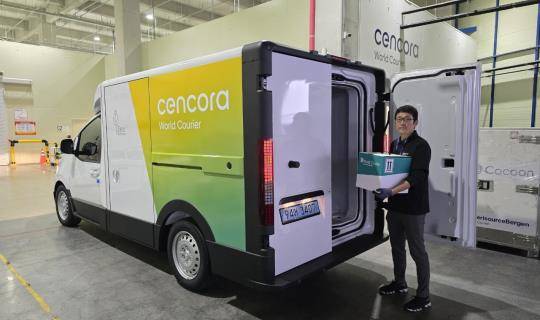Strengthening partnerships: Considerations for setting up robust specialty commercial drug supply chains
By Christopher Engel


This on-demand webinar — hosted by Chris Engel, Director, Service Development and Supply Chain at World Courier — provides a comprehensive overview of the importance of collaboration in supply chain management, with practical steps you can take to specify your specialty drug product requirements. Choosing the right logistics provider and building a strong partnership is also discussed, based on observations, and backed up with data to support the process of selecting a logistics provider that is the right fit for your company.
We will cover the importance of setting up a robust supply chain for business continuity, along with best practices for ensuring a reliable and efficient supply chain. Whether you are looking to streamline your supply chain operations or just want to optimize your specialty logistics and distribution processes, this webinar, and checklist handout is the perfect resource for you.

Webinar summary
Specialty drugs, designed to treat complex or rare medical conditions, play a crucial role in modern healthcare. Ensuring the safe and efficient delivery of these valuable medications demands a well-established supply chain with a focus on resilience and sustainability. Here are some key insights from on how to achieve these organizational resilience and sustainability goals.
Collaboration fuels success
Chris emphasized the importance of early collaboration between research and development (R&D) and manufacturing teams. By streamlining processes and fostering a deeper understanding of each other's needs, these teams can design logistics solutions tailored to the unique demands of specialty drugs. This proactive approach ensures smoother development and sets the stage for a more efficient supply chain.
Sustainable packaging: A key driver
Packaging innovation hold the potential to significantly impact the environmental footprint of pharmaceutical supply chains. Moving away from traditional single-use packaging, Chris advocated exploring reusable options. Sustainable packaging not only reduces carbon emissions but also presents long-term cost benefits. By investing in durable materials and establishing reverse logistics processes, the industry can embrace eco-friendly solutions without compromising product safety.
Resilience in the face of challenges
The recent COVID-19 pandemic laid bare the vulnerabilities in pharmaceutical supply chains. Recognizing the need for resilience, Chris stressed the importance of flexible and adaptable supply chains. Specialty drugs, often used to treat critical illnesses, require a steadfast supply chain that can withstand disruptions and ensure a steady flow of medications to patients in need.
A practical success story
A real-world example showcases the positive outcomes of collaborative efforts. By reassessing stability data, purpose, qualification, and regularity, a client transitioned from using traditional dry ice boxes to thermal container systems. The shift resulted in reduced cargo weight, eliminated polystyrene boxes, and a remarkable decrease in CO2 emissions. This achievement illustrates the benefits of proactive partnerships in logistics and their potential to drive meaningful change.
Key takeaways
- Early collaboration — collaborate between R&D and manufacturing teams from the start to design tailored logistics solutions, ensuring an efficient and adaptable supply chain for specialty drugs.
- Sustainable packaging — embrace reusable packaging to reduce the environmental impact, lower carbon emissions, and gain long-term cost benefits without compromising product safety.
- Prioritize resilience — build flexible and adaptable supply chains to withstand disruptions, ensuring a steady flow of critical specialty drugs during challenging times for better patient care.
The sum up
Building robust and sustainable specialty drug supply chains is not only a strategic move, but also imperative to patient health worldwide. By fostering collaboration between R&D and manufacturing, embracing sustainable packaging solutions, and prioritizing resilience, the pharmaceutical industry can ensure the efficient delivery of life-saving medications to patients worldwide. With a shared vision and concerted efforts, the future of specialty drug logistics is poised to be more resilient, environmentally friendly, and patient-centric.






